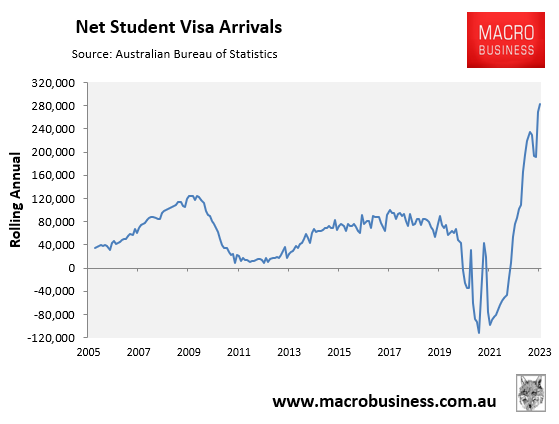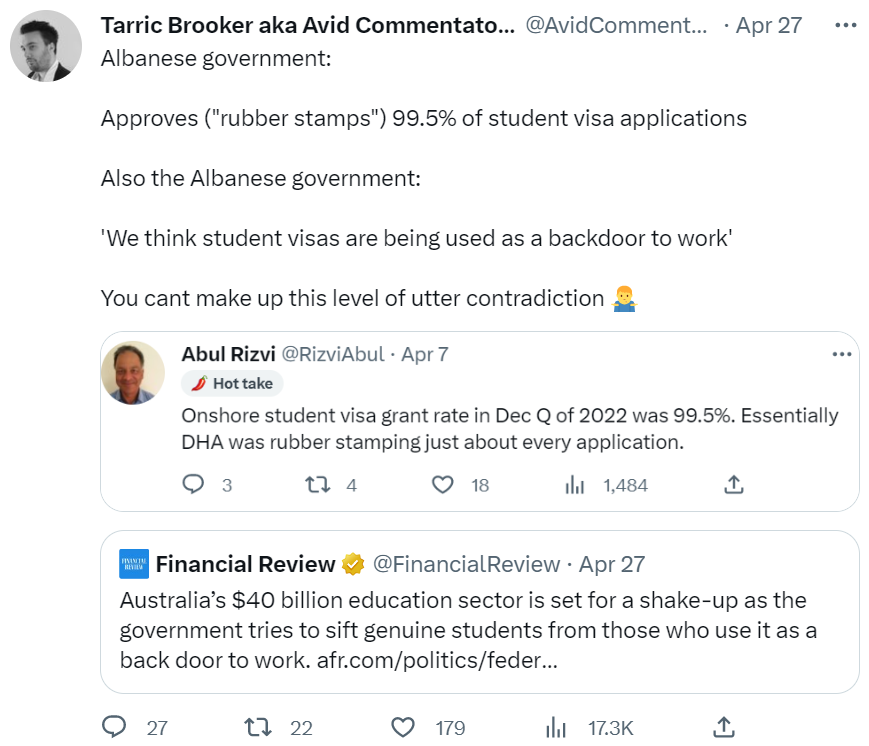Home Affairs Minister Claire O’Neil last week announced a crackdown on rorting education agents and institutions by closing avenues to use the student visa system for gaining backdoor work rights in Australia.
“Instead of pretending that some students are here to study when they are actually here to work, we need to look to create proper, capped, safe, tripartite pathways for workers in key sectors, such as care”, O’Neil told the National Press Club on Thursday.
“More than half of the people who receive permanent skills visas under our current system arrived in Australia on a student visa”.
O’Neil said the bar set for students to come to Australia has been set too low, with the system rewarding tenacity rather than competence and talent to live in Australia as a permanent resident.
She also pointed out that international graduates are poorly paid compared to their local counterparts, with many holding jobs well below their qualification level.
O’Neil’s pronouncement follows an unprecedented surge in net student visa arrivals in Australia, which has been the main contributor to the nation’s current record net overseas migration:

It also follows recent comments from Labor MP Julian Hill and the International Education Association of Australia CEO Phil Honeywood that Australia’s international education system has become a “Ponzi scheme” for enticing non-genuine students through migration pathways.
Independent economist Tarric Brooker was quick to point out via Twitter that Labor’s pronouncements on international education were contradictory, given the Albanese Government has deliberately handed out student visas like Tic-tacs:

Tarric Brooker is correct. The Albanese Government announced at last year’s Jobs & Skills Summit that it would turbo-charge international student arrivals by:
- Extending the unlimited work cap by an additional year;
- Extending post study work rights for an additional two years; and
- Increasing the permanent migrant intake by 35,000 to a record high 195,000, thus improving the likelihood of students gaining permanent residency.
Prime Minister Anthony Albanese also last month signed a Memorandum of Understanding (MOU) with India that will result in a tsunami of poor quality ‘students’ and migrants landing in Australia.
Sure, the unlimited work cap will end on 1 July. However, even here, the Albanese Government has increased the new work cap to 24 hours a week, up from 20 hours pre-COVID.
Therefore, Labor has deliberately incentivised international ‘students’ to continue using the visa system for backdoor work rights and permanent residency.
If the Albanese Government was genuinely interested in ending the international education rort, it would instead target a smaller pool of genuinely excellent students.
This can be achieved by increasing the financial requirements for entering Australia to study, raising entrance standards (especially English language proficiency), and severing the direct link between studying, work rights and permanent residency.
These reforms would ensure that students actually come to Australia for an education, and in turn would:
- Lower enrolment levels to manageable and sustainable levels, and enhance quality and the learning environment for local students;
- Increase export earnings from the international education sector;
- Reduce competition in the labour market for younger Australians, thereby improving wages and conditions; and
- Ease population pressures on housing, infrastructure and the natural environment.
In short, rather than ‘cracking down’ on the international education rort, the Albanese Government has instead chosen quantity over quality.
Labor has locked-in ‘Big Australia’ immigration that will ultimately deliver a worsening of the rental and inequality crisis for younger Australians.

